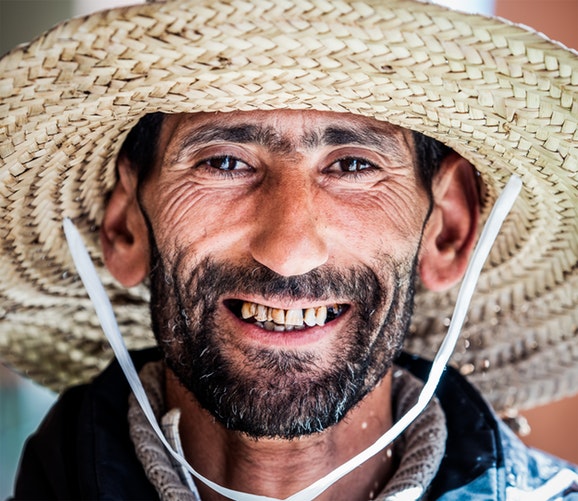Someone asked me recently if I’m a “happy person.”
I was a little put off by the question. I’m not really sure what it means. Usually, when someone asks me something that I don’t understand, I like to dig really deep and get to the root of the question.
I imagine what most people mean is something along the lines of: “Do you enjoy life?” Or: “Do you feel good about being alive?” However, that’s not necessarily the first thing that comes to mind when I think of what it means to be “happy.”
I enjoy being alive when I am laughing with friends, when I am writing, or when I am listening to a beautiful piece of music. However, I would never write off the tragic side of life—it is just as essential to me as everything else.
There would be no happiness without struggle. There would be no joy without sorrow.
When I think of a “happy person,” what first comes to mind is a quality of cheerfulness and elation. To me, this is only a small part of life. I am happy when I run into an old friend who I haven’t seen in a long time, or when something I write is well-received online. This is not a feeling that is supposed to stick around. Happiness feels like a celebration of life, and it’s not always a good enough reason to be celebrating.
Am I a happy person? I don’t know. As someone who lives with a severe chronic illness, contending with debilitating symptoms day in and day out, I don’t think “happy” is a word that portrays my experience very well.
Happiness is about “things.” Are you happy with your job, your relationship, your car? Our level of happiness in life speaks to the quality of our external experience: how we are moving through the world and what is happening on the “outside.”
In this sense, I wouldn’t say I am very happy, because I am suffering constantly. That being said, I do experience profound states of spontaneous joy and a lasting sense of inner peace—but that is different than happiness.
Happiness and joy are not the same thing. Again, I associate happiness with the quality of our experience with the “outside” world, the material that makes up our lives. We want to celebrate life when the moment is right, but there will inevitably be times of darkness and chaos when we really shouldn’t be “happy.”
Why should we be happy if we just lost our job, have fallen prey to an illness, or have just been dumped?
This is where joy comes in…
Joy is something much deeper than happiness. If happiness has to do with the quality of our external lives—how and what we are doing—then joy has more to do with the quality of our internal lives: what’s happening in the deeper dimension of our consciousness.
To give an easy example: happiness is the feeling we get when we buy a new car, and joy is the feeling we get when we’re standing on the side of the road after having totaled that car, realizing there are more important things in life than new cars—and we’re grateful not to have died in the accident.
Joy is what comes when we feel that our lives are meaningful. That’s about the simplest way I can put it.
Through the course of my illness, I have learned to find a deeper sense of joy within myself when experiencing extreme pain. I can’t rely on the outside world; it has given me profound suffering and unimaginable agony the past few years. There are deeper resources in my soul that have little to do with being “happy” that have been tapped into in response to my condition, giving me the strength to live on.
Maybe happiness is overrated.
I’ve known people who have suffered more than most of us can possibly imagine—and although they may seem unhappy on the surface, they are still capable of experiencing a quality of joy and deep satisfaction that far exceeds normal happiness.
So, what’s the real difference between these two qualities? Joy is something that comes through depth—through recognizing the innate beauty and unlimited power of simply being alive. When we suffer on the surface, we are made to find joy in our heart.
Happiness is something that mostly comes through fortune—by having the outer workings of our lives work smoothly and provide continual stability. Some people just don’t have access to this, but that doesn’t mean they can’t attain a sense of joy (in fact, they are even more likely to find it).
Joy is better than happiness. If we pay close attention to our lives and are observant of ourselves, we can have both. Having one does not diminish the other. We just need to understand that happiness is something that comes and goes, whereas joy can stay with us through the hard times.
I’m not a happy person. My life is hard; although, in spite of my condition, I profoundly enjoy the experience of being alive. My soul feels invigorated. My heart feels uplifted. There is a power and energy to my embodied experience that maintains through pain and suffering in almost a kind of religious way.
When we are experiencing something difficult in life—making it impossible to feel truly happy—remember that joy is much more precious.
Uncover this resource that lives in our heart of hearts: the inborn capacity to endure suffering while continuing to love—and let it guide us through the chaos.
That is how I want to live, and that is how I am living.
https://www.youtube.com/watch?v=wjEciIWkKxI
~
Relephant:
The Key to Finding Joy in Discomfort.
~
Author: Samuel Kronen
Image: Unsplash/Mika Ruusunen
Editor: Yoli Ramazzina
Copy Editor: Travis May


 Share on bsky
Share on bsky





Read 7 comments and reply